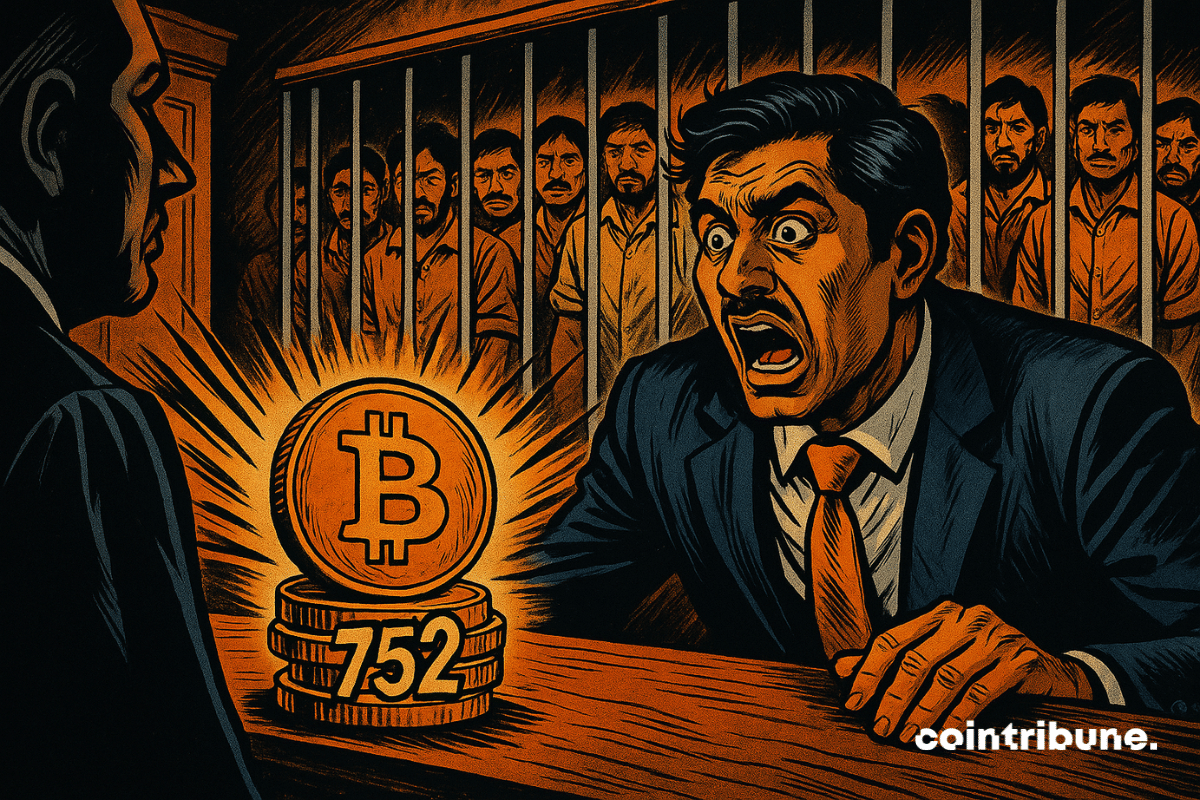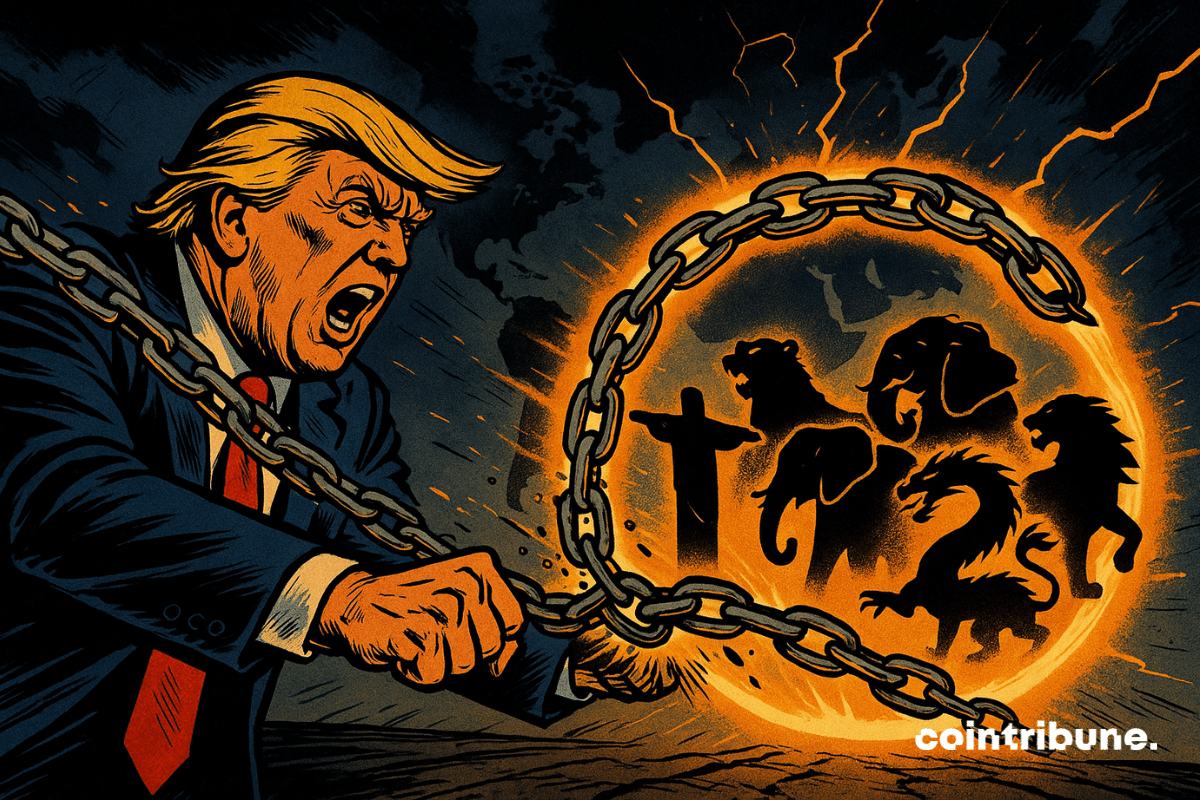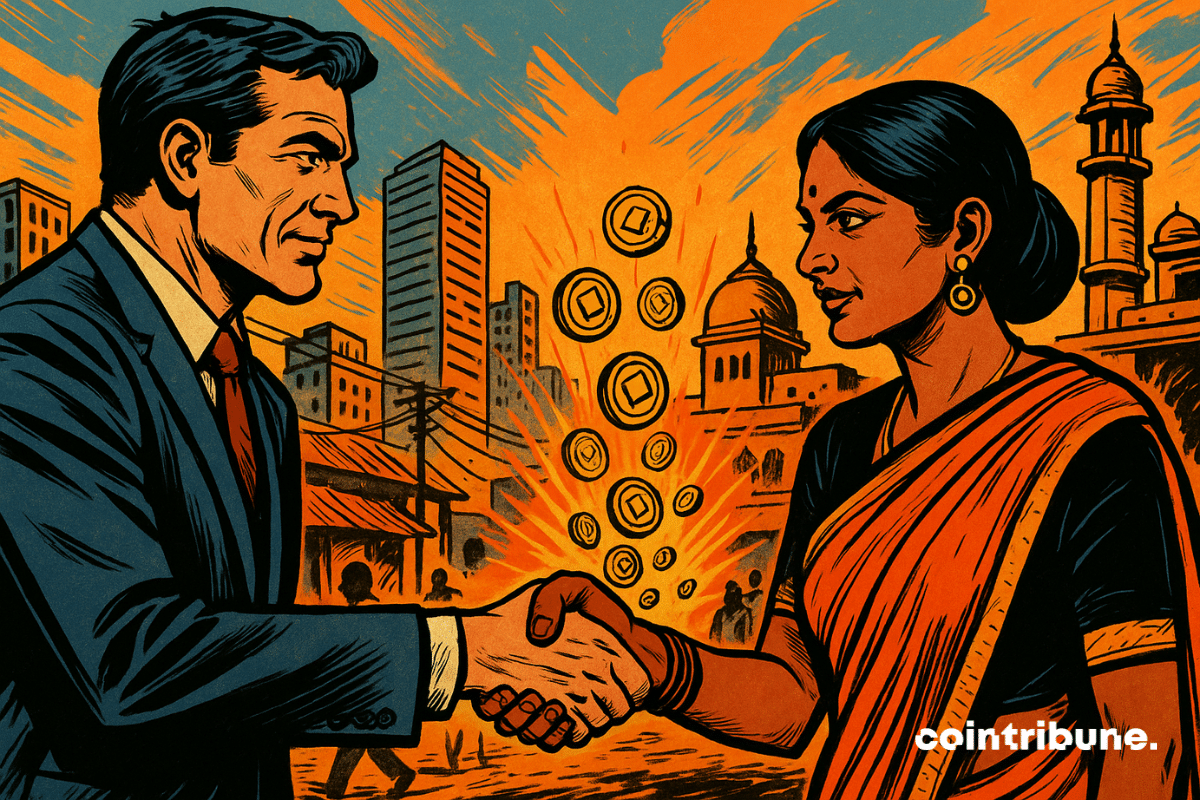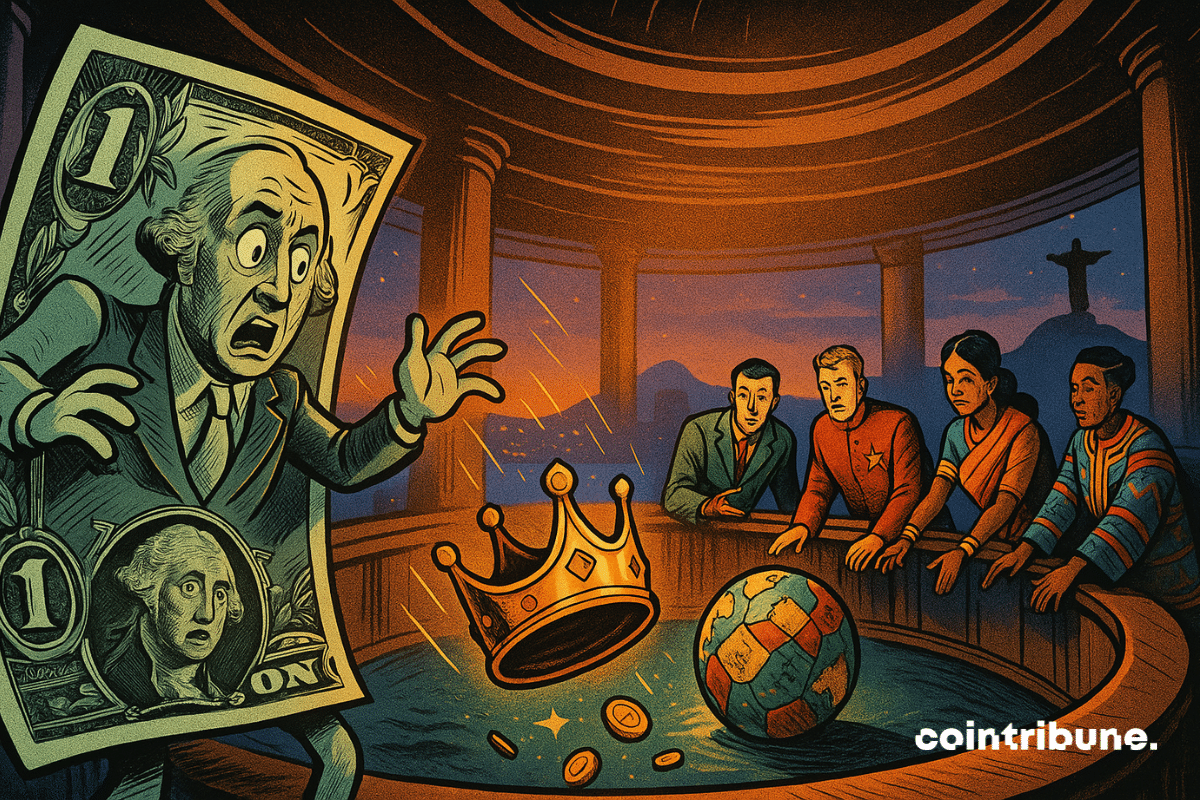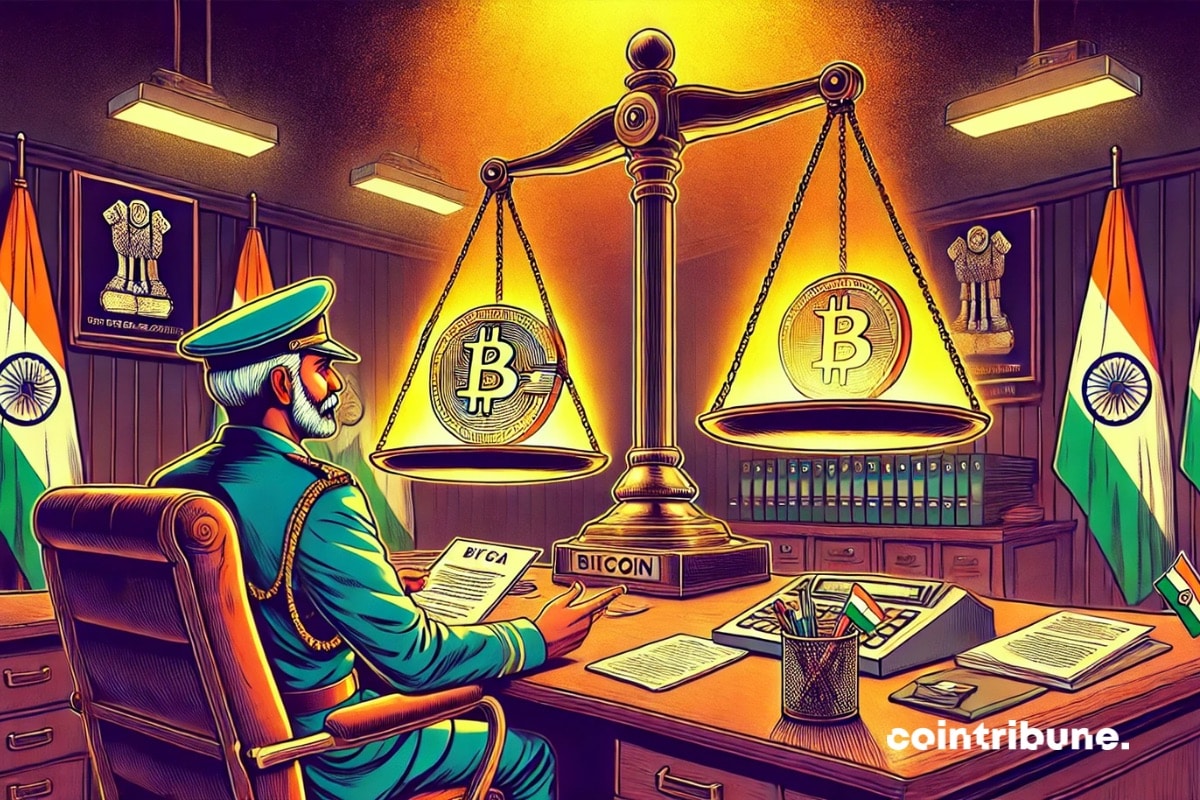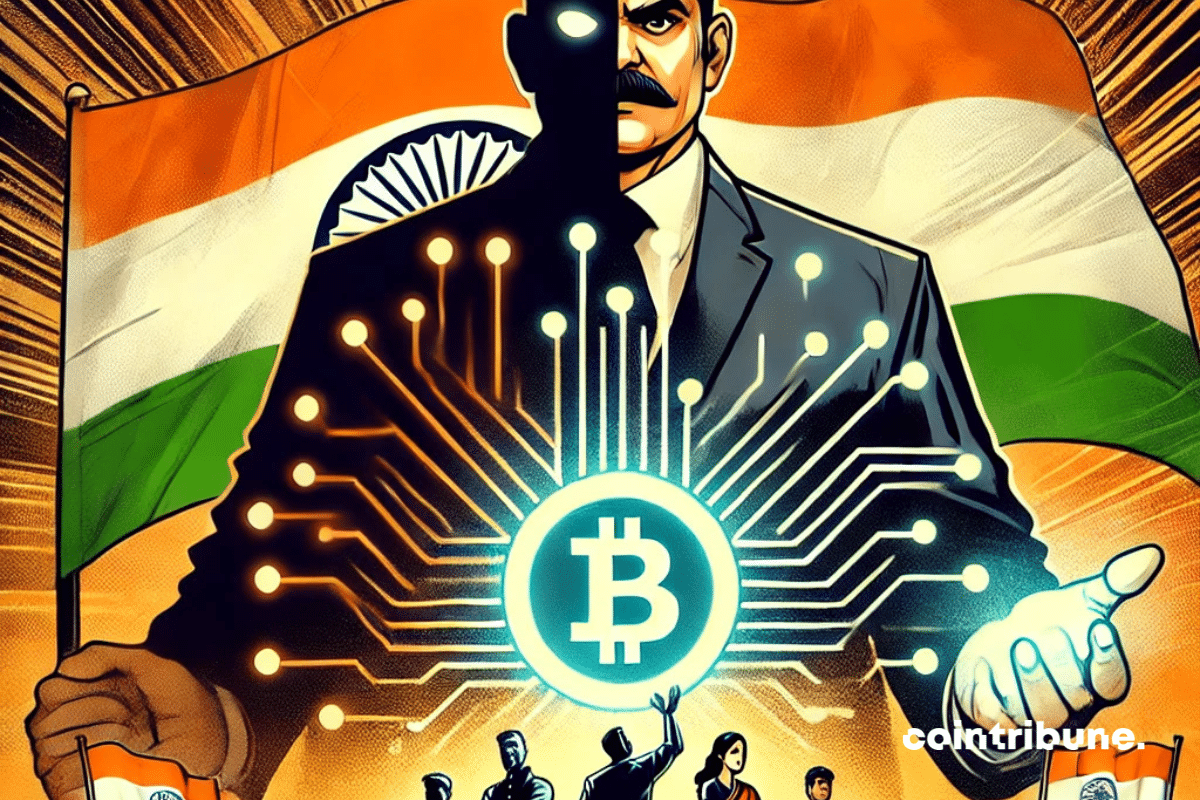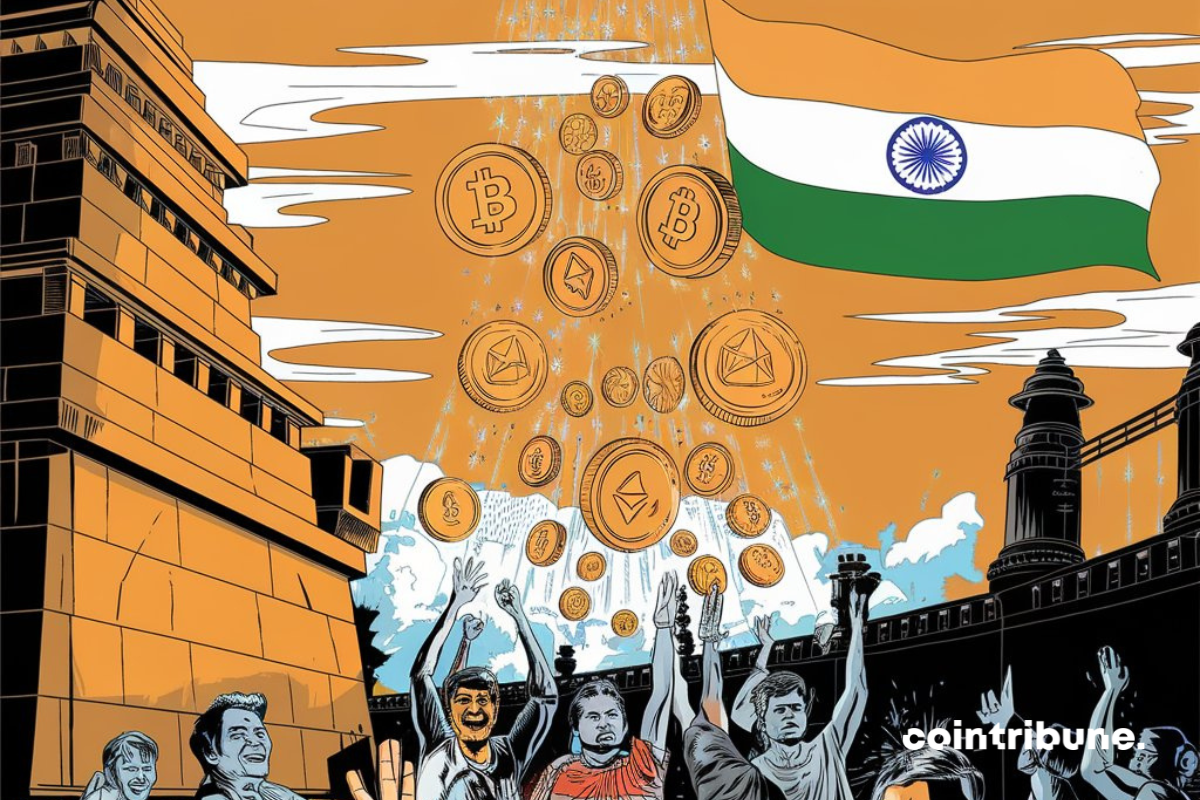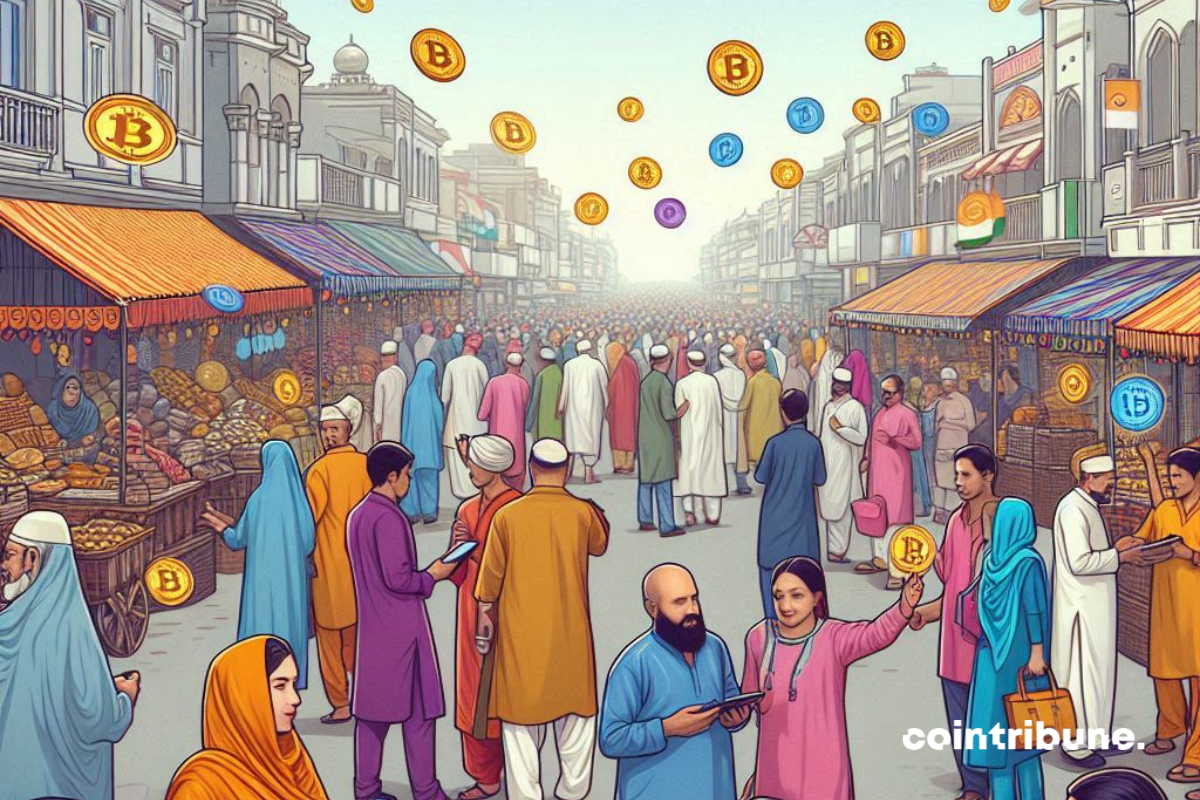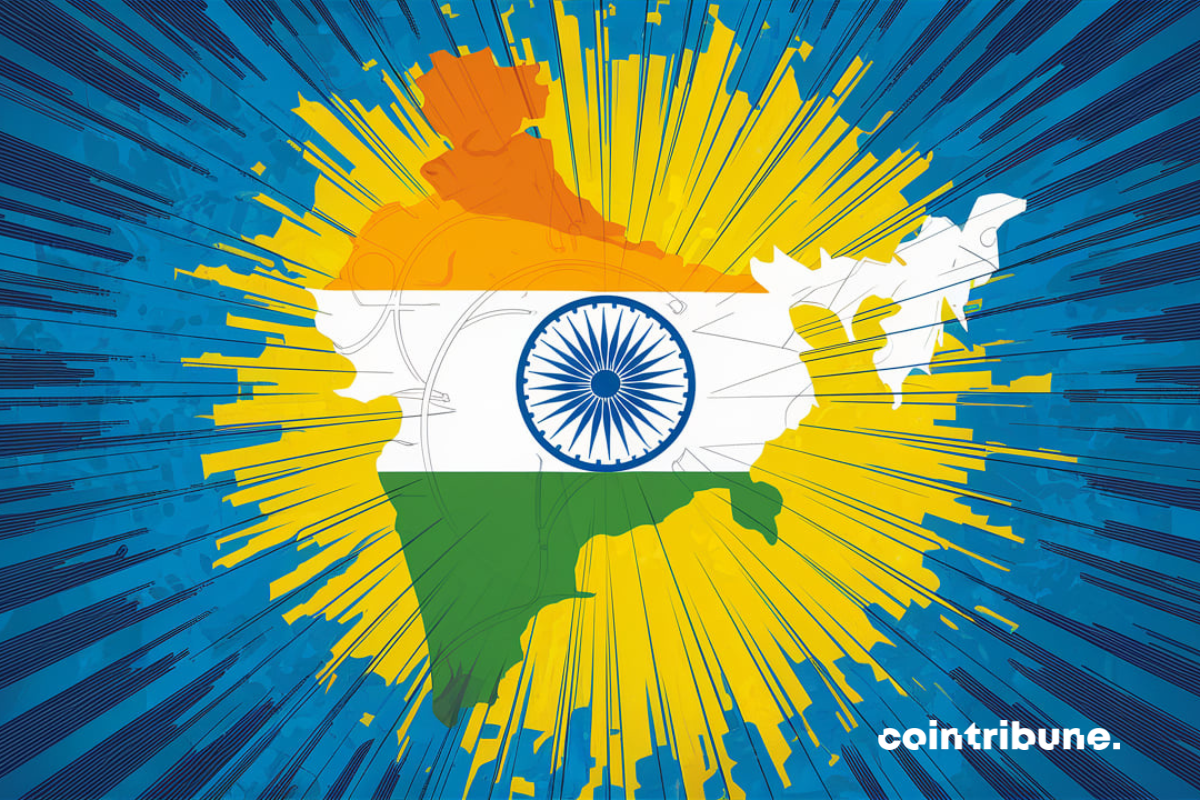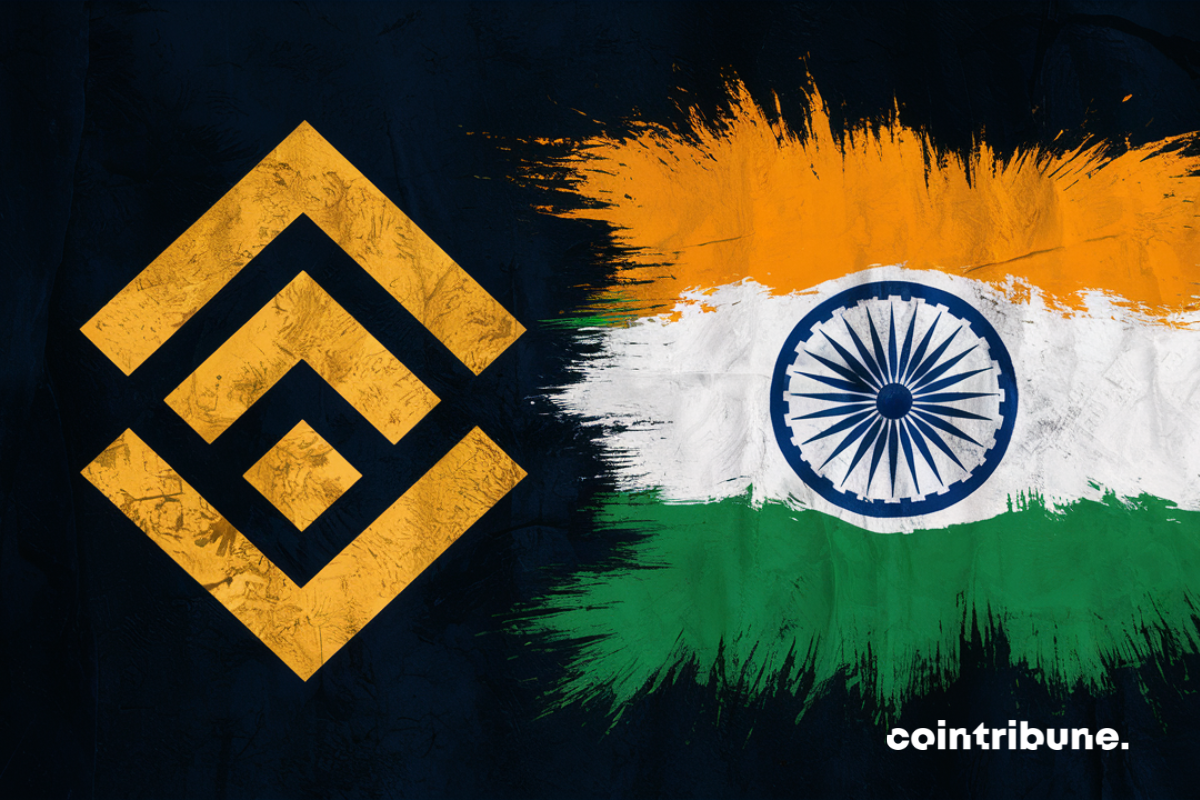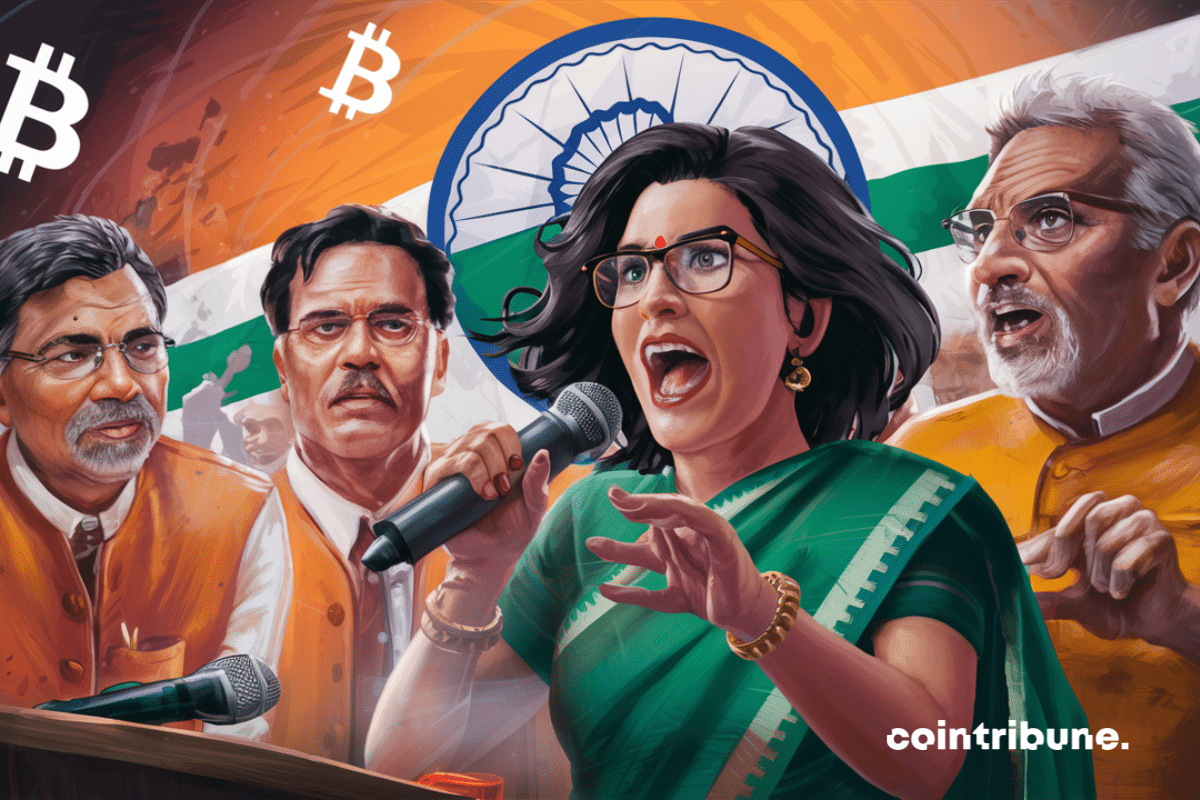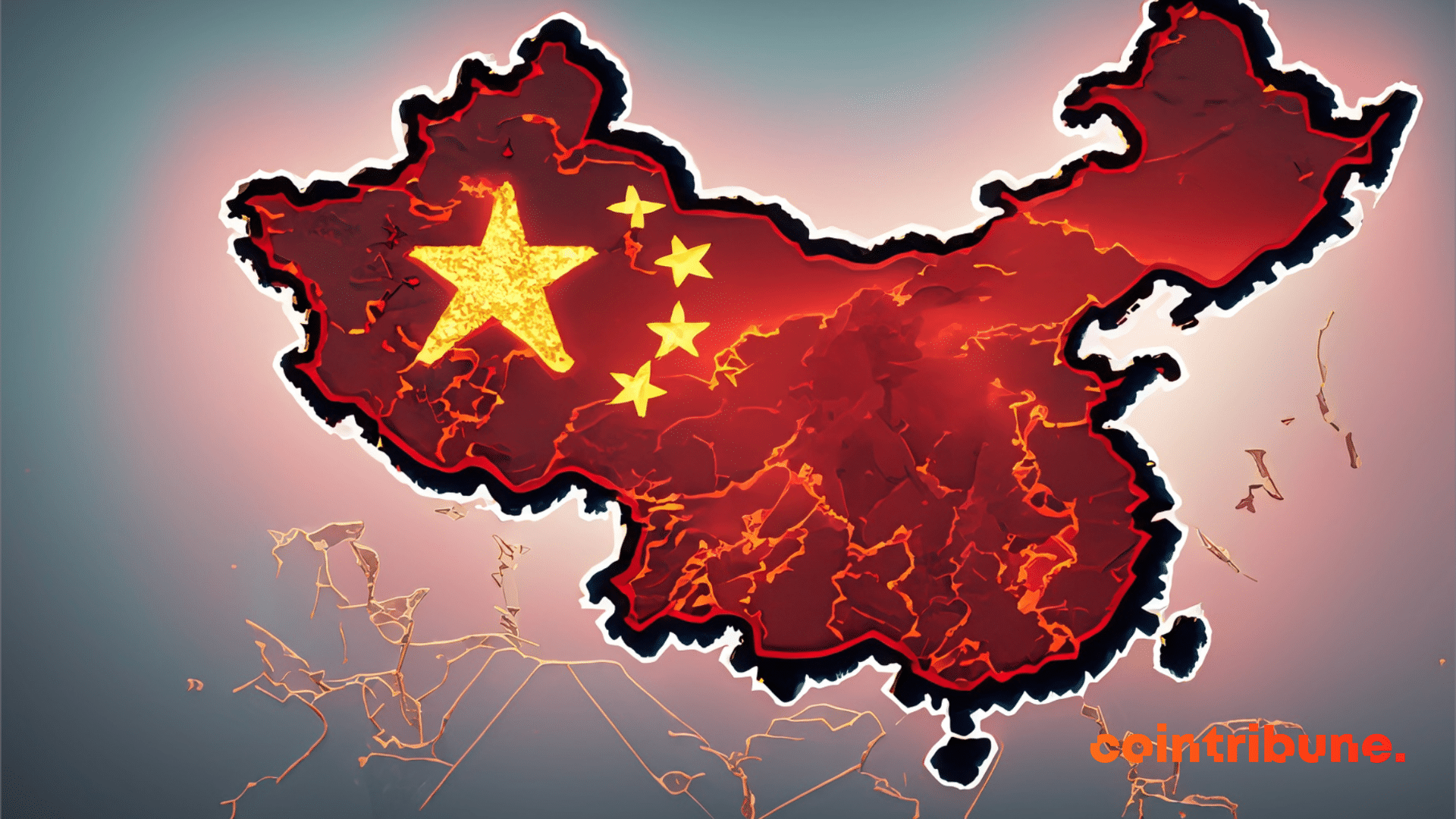When cops play gangsters, even bitcoin becomes ransom money. In India, the Bhatt case reveals crypto-greedy police officers... sentenced to meditate in jail.
Inde
By seeking to isolate his rivals, Donald Trump could well get the opposite effect. Under the pressure of his trade sanctions, the countries of the BRICS bloc, long divided, are beginning an unprecedented strategic rapprochement. As tensions rise, China, India, Russia and their partners seem more willing than ever to cooperate economically and diplomatically.
Credefi announces a partnership with Vayana, described as the largest TradFi platform in India, to deploy tokenized debt instruments in a fully compliant framework and open them to DeFi investors. Beyond the marketing signal, the agreement marks a regulated channel between crypto capital and real financing needs (SMEs, supply chains) in one of the fastest growing economies.
Can the dollar lose its global supremacy? What was once speculation is now taking a concrete diplomatic turn. As the BRICS summit approaches in Rio, major emerging economies are placing local currency transactions at the heart of their strategy. This shift occurs within a context of growing geopolitical tensions and demands from the Global South for a more balanced financial system. Behind this dynamic lies a possible redefinition of the rules of global trade.
When a consumer product surpasses oil and diamonds in the exports of a country like India, it is no longer just an industrial success, but a strategic shift. The meteoric rise of smartphones as the leading export item reflects a redeployment of the country's economic priorities. This turning point marks the emergence of a manufacturing India connected to global value chains, with possible repercussions on the balance of international trade, technological flows, and ultimately, on digital uses and the dynamics of the crypto economy.
India is currently reassessing its position regarding cryptocurrencies. Ajay Seth, the economic secretary of the Ministry of Finance, stated that India is closely monitoring international developments related to cryptocurrencies. The rise of these digital assets globally is prompting the country to reflect on its regulation and policy regarding crypto.
In a significant stance, the main Indian regulators and institutions consulted by the government advocate for a ban on private cryptocurrencies like Bitcoin and Ether, preferring the central bank digital currency (CBDC).
When 134 countries play sorcerer's apprentices with CBDCs, it is 98% of the global economy that enters a zone of digital turbulence.
The FIU-India is somewhat of a strict regulator of crypto. After approving Binance and KuCoin, it is considering welcoming two other platforms... but not without a small fine as a gift!
India is set to take a decisive step in crypto regulation. Indeed, the government plans to publish a discussion document by September detailing its position on digital assets. This initiative marks an important step towards establishing a regulatory framework in a country where uncertainty has long reigned.
The international monetary system is in turmoil. The BRICS are exploring various avenues with varying degrees of success.
India and the United Arab Emirates are determined to replace the dollar with their national currencies.
New Delhi repatriated its gold from England, a sign that a new international monetary order is in the making. Bitcoin lying in wait
Binance spends 2 million dollars to re-enter the crypto market in India. How does this redefine the global crypto landscape?
The main Indian opposition party alleges that the Modi government has "paralyzed" it by freezing bank accounts. Bitcoin fixes this.
Striking contrast: stagnant Chinese market, booming Indian market. High valuation of India raises concerns.
There's a growing chorus insinuating that the American hegemon is threatened by the BRICS. But what's really going on?
